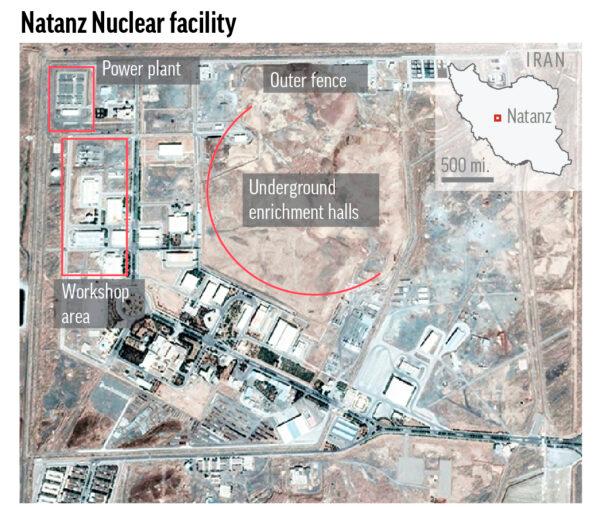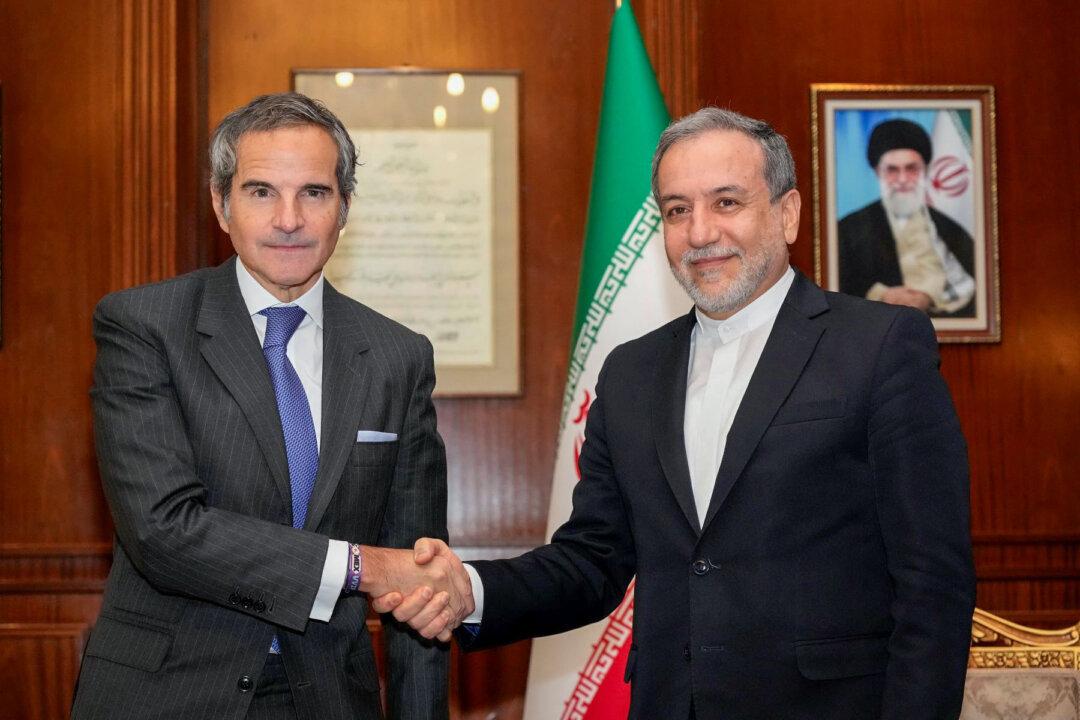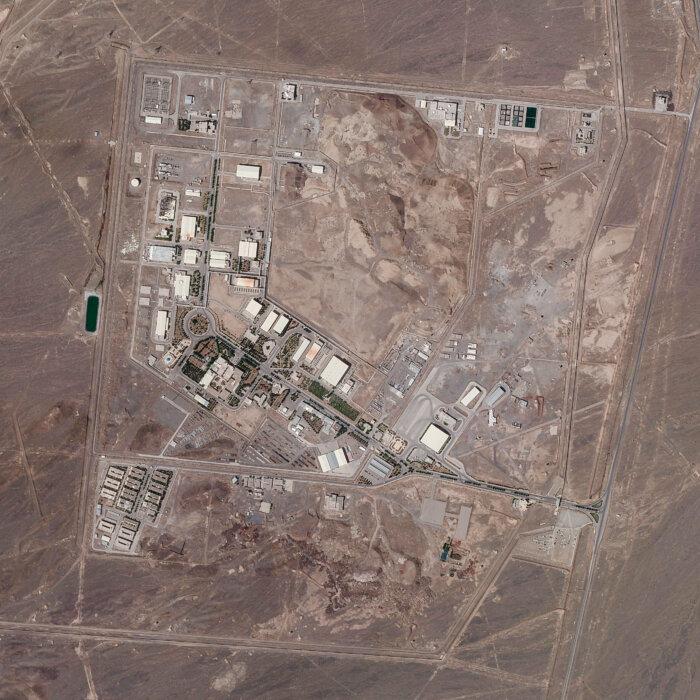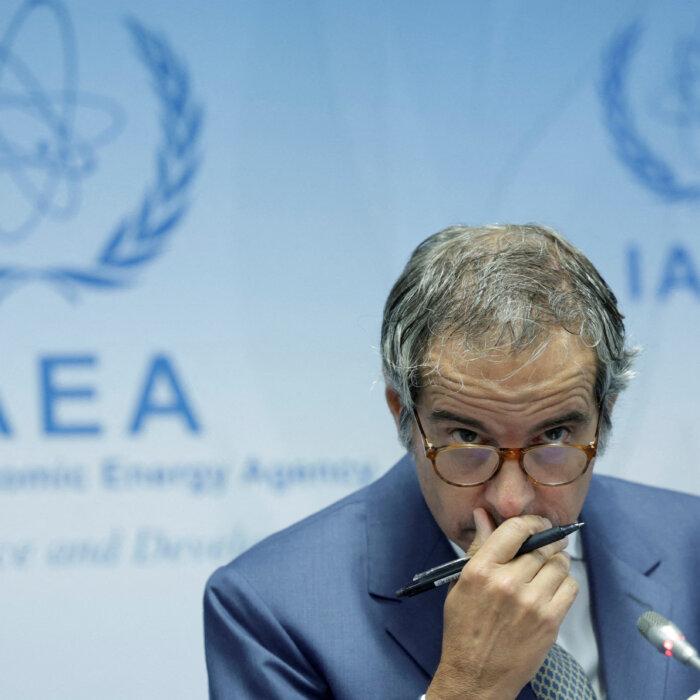The director general of the International Atomic Energy Agency (IAEA), Rafael Grossi, has said that Iran has taken “concrete steps” in the “right direction” regarding its nuclear program.
But a quarterly report published by the IAEA on Nov. 20, following Grossi’s visit last week to Iran, states that the Iranian regime has amassed a stockpile of enriched uranium that is more than 32 times the limit set by the 2015 JCPOA nuclear deal.
On Nov. 20, the IAEA revealed that Iran’s total enriched uranium stockpile was estimated at 6,604.4 kilograms on Oct. 26, up by 852.6 kilograms since the last quarterly report in August.
In recent years, Iran has increased its enrichment of uranium up to 60 percent purity, not far short of the 90 percent level required to be weapons-grade.
The IAEA’s latest report states that as of Oct. 26, Iran has 182.3 kilograms (401.9 pounds) of uranium enriched up to 60 percent, an increase of 17.6 kilograms (38.8 pounds) since August.
“This is why I requested the Islamic Republic of Iran to exercise restraint, not only to exercise restraint, but also, if possible, to stop increasing the stockpile of 60 percent uranium.
‘Unnecessary Escalations’
Grossi, a former Argentinian diplomat, said, “A lot needs to be done in the area of the outstanding verification issues and also in this very important area where a degree of, I would say, prudence, still restraint, collaboration, avoiding unnecessary escalations, in particular, in a region that has suffered too much.”The IAEA report states that on Nov. 16, the agency’s inspectors verified that “Iran had begun implementation of preparatory measures aimed at stopping the increase of its stockpile of uranium enriched up to 60 percent U-235” at its underground nuclear sites in Fordow and Natanz.
Later, answering questions from journalists, Grossi said he thought that Iran had taken “concrete steps” in the “right direction” regarding its nuclear program, but he declined to say whether it was enough or too little.
Iran, which denies that it is building a nuclear weapon, has backed its proxies, Hamas and Hezbollah, during their conflicts with Israel, which began when Hamas terrorists massacred 1,200 people in Israel after crossing the border on Oct. 7, 2023.
Resolution Would ‘Complicate Matters’
The exact wording is unclear, but Iranian Foreign Minister Abbas Araghchi has told his French counterpart, Jean-Noël Barrot, that the resolution would “complicate matters,” according to the Iranian Foreign Ministry’s Telegram channel.Grossi said he would not comment on his position on the EU/E3 resolution.
In 2015, Iran signed the JCPOA (Joint Comprehensive Plan of Action) deal, which aimed to curb Tehran’s work on its nuclear weapons program in exchange for easing international sanctions, with the United States, the EU, Britain, France, Germany, China, and Russia.
During his first administration, Trump pulled out of the JCPOA, calling it a “horrible, one-sided deal that should have never been made.”
The quarterly report also states that “the possibility of Iran not further expanding its stockpile of uranium enriched up to 60 percent U-235 was discussed” during Grossi’s visit to Tehran last week.
Grossi was also asked about the recent claims that Israel had bombed a nuclear facility at Taleghan, which is part of the Parchin complex.
He said the IAEA did not consider Taleghan a nuclear facility.
Asked whether he was concerned that Israel would bomb other Iranian nuclear facilities, he said: “You know my position on this. There is a body of law that indicates that nuclear facilities should not be attacked, and it is my hope that it will be the case, and that good reason will prevail.”
He said he planned to talk to the Israeli government about the Iranian nuclear program in the coming days.
The agenda of the IAEA board of governors includes an item on the “NPT [Nuclear Proliferation Treaty] safeguards agreement with the Islamic Republic of Iran.”
In it, they agreed that “interactions between the IAEA and Iran will be carried out in a spirit of collaboration, and in full conformity with the competences of the IAEA and the rights and obligations of the Islamic Republic of Iran, based on the comprehensive safeguards agreement.”
The agreement also reads, “Iran, on a voluntary basis will allow the IAEA to implement further appropriate verification and monitoring activities.”

But surveillance cameras installed by the IAEA have been interfered with, and Iran has prevented some of the agency’s most experienced inspectors from entering the country.
On Nov. 19, State Department spokesperson Matthew Miller said: “We remain tightly coordinated with our E3 partners in advance of the IAEA board of governors meeting. And we strongly support efforts to hold Iran accountable.
“The Iranian regime continues to amass a growing stockpile of highly enriched uranium for which there is no credible civilian purpose and they continue to not cooperate fully with the IAEA.”
Trump has said that he will exert “maximum pressure” on Iran when he returns to the White House in January 2025.







